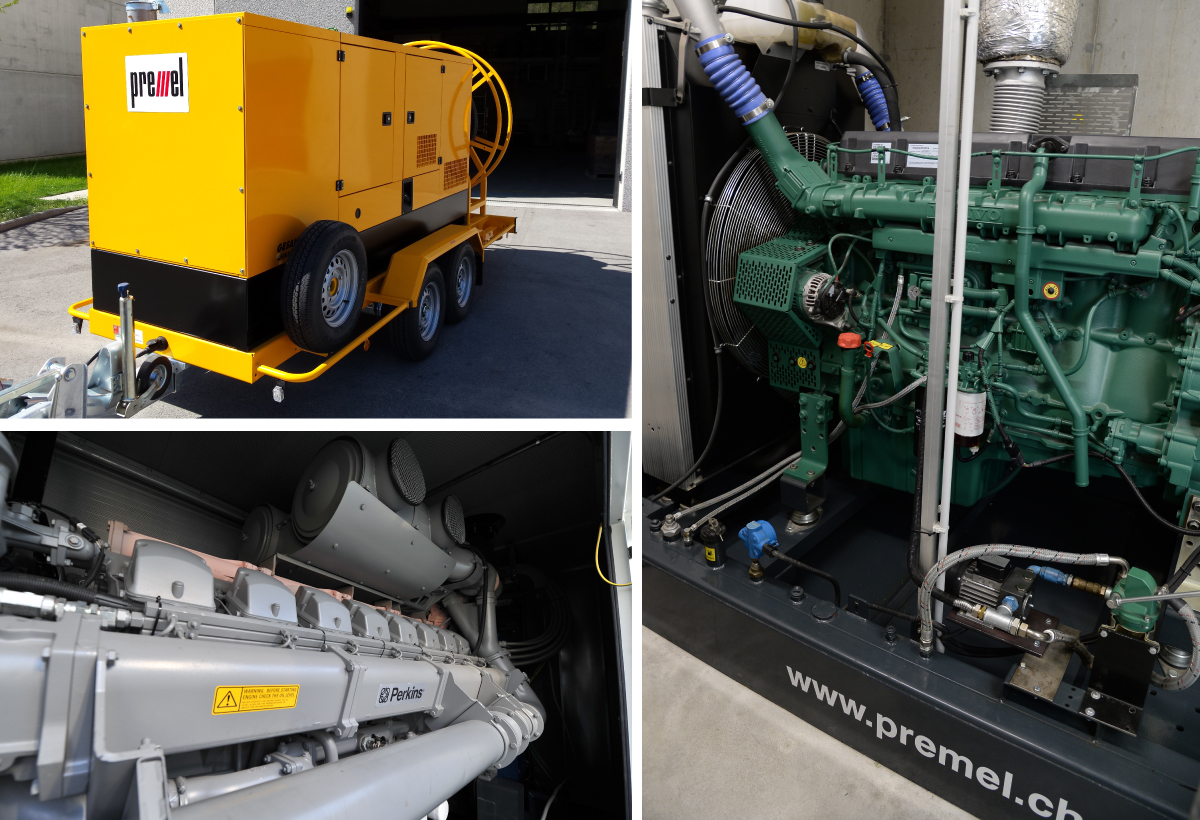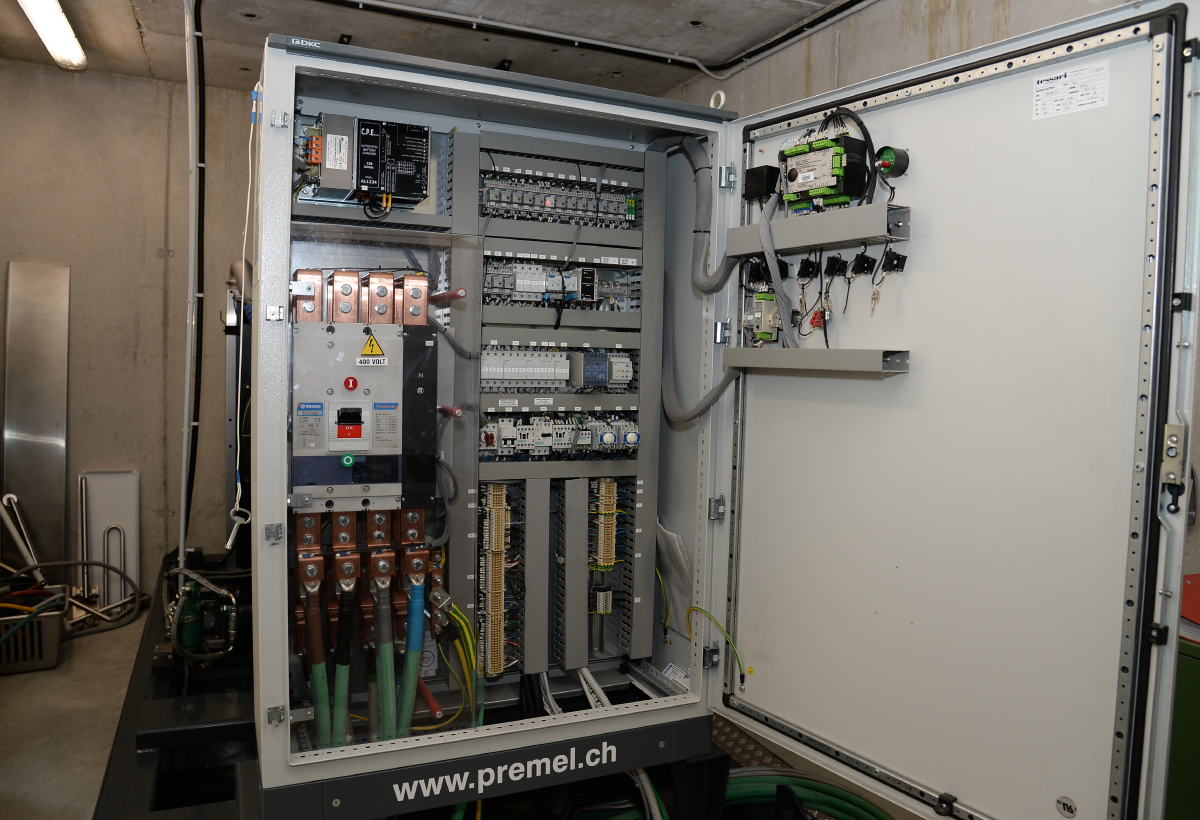Power outages aren’t only inconvenient, but they can lead to substantial material losses and even lead to life-threatening situations. So, industrial buildings and power plants can’t do without an emergency generator set. Failures in the main grid could be caused by extreme weather conditions, maintenance or human failure.
In any case, industrial emergency generators should be ready to go when an event occurs. This article will discuss industrial generators, how they work, and why they’re indispensable.
Why Industrial Emergency Generators Matter
For most industrial facilities, it’s unthinkable to spend even a few minutes without a power supply. Here are the main reasons why these generators are essential.
Loss of Sensitive Goods
Many products and elements used in food and pharmaceutical facilities must be stored in cooled locations with tight temperature control. Sudden changes in the temperature of these chambers can result in the loss of entire batches. That’s why such facilities usually use UPS (uninterruptible power supply) systems, which they combine with emergency and backup generators.
Communication Breakdown
Power outages can result in the loss of critical data in the production chain, leading to failures and miscalculations. Also, the communication between different sectors within the same facility or between different facilities is severely compromised. In warehouses and distribution centres, it means losing control of the movement of goods while the power is off, potentially damaging consequences.
Security and Safety
So do security systems based on cameras and automated doors when the power goes off. It means leaving the entire facility vulnerable to invasions and exposing sensitive information in the offices. The prompt restoration of the energy supply also means business security. Besides, stairways and corridors should be well-lit. Otherwise, it could cause accidents.
Business Reputation
Failures caused by power outages can also be felt by clients, getting delayed, damaged or wrong items. Such problems reflect poorly on the reliability of any brand. Unhappy clients won’t care about these reasons. They’ll just bring their money elsewhere and write bitter reviews.
Different Types of Emergency Generators
There are several factors involving the choice of a power backup system. The best emergency generator is the one that’ll cover all the basic needs of an industrial site, no matter how big or small. These generators vary in size, capacity and type of fuel. Here are the main types of emergency generators available at the moment.

Portable Generators
Portable generators aren’t as powerful as most emergency power generator systems. It’s a smaller set meant to be easy to carry around, so they’re perfect for localised tasks where the normal grid doesn’t reach. This kind of generator is mainly used for powering road signs and other signage and external projects.
Natural Gas Generators
Natural gas is considerably cheaper than other fossil fuels, delivering comparable performances. For this reason, natural gas generators are pretty common for industrial purposes. Natural gas is also cleaner than most fuel types, such as coal, diesel or propane. However, because gas pipelines feed this generator, the supply could be shut in case of a calamity.
Diesel Generators
These are the most common types of generators and are usually divided into two parts: the electrical generator and the diesel engine. Unlike gas generators, these ones store their own fuel, not depending on pipelines. It means the continuous supply of energy, even under most testing situations. For this reason, it’s commonly used as a hospital emergency generator or an emergency backup generator for industrial purposes.
Inverter Generators
Inverter generators adjust their output according to the demand of the moment. It means it doesn’t run at a constant speed, making it more fuel-efficient and less noisy. These generators are controlled electronically and are also portable devices. Often, they come with automatic CO2 shutoff systems to prevent carbon monoxide poisoning.
Maintenance
Generators are complex machines built in several parts, which should be considered separately for maintenance purposes. Here’s what you need to know to maintain a generator set adequate maintenance.

Engine
The engine is the core of the generator set, and it’s responsible for generating mechanical energy via fuel combustion. When the engine underperforms, it becomes noticeable because it’ll consume more fuel and deliver less energy than it says on the nameplate.
Battery
Modern generators use batteries, which are charged when the machine is on. While the battery charges itself during usage, starting an emergency generator is impossible if the battery has no charge.
Voltage Regulator
Oscillations in the power supply can lead to sudden spikes in energy. Such fluctuations could damage the machinery and halt the entire production. Voltage regulators keep the electricity output steady, despite eventual variations.
Fuel
The adequate functioning of generators demands a constant flow of fuel through their parts. Cut-off valves, blockages and leaks are the most common problems found in fuel systems. Such failures can have tragic consequences due to their combustible nature.
Lubricant
Any machinery involving moving parts needs lubricants, and generators aren’t different. Alternators and other engine components need lubricant to prevent damage by friction. Lubricants should be changed regularly since contaminated lubricants won’t protect moving parts adequately.
Exhaustion and Cooling Systems
Generators also need efficient cooling and exhaust systems. The internal combustion created by the engine leaves gases behind and heats the entire appliance. Cooling systems keep it at a workable temperature. Lack of ventilation or exhaustion can cause the generator to shut down due to overheating.
Industrial Emergency Generators From Premel
You’ll find the best emergency generators for sale at Premel. Premel is a Swiss-based company which provides industrial solutions for power generation since 1947. Decades of top-notch services strictly following ISO 9001 standards have earned Premel a solid reputation in this segment. We’re also responsible for emergency generator installation and maintenance. So, there’s no need to look for different companies to provide these services.
Premel is the one-stop solution you need to keep an industrial power plant up and running, regardless of external conditions. Learn more about Emergency Generator Systems from Premel.
